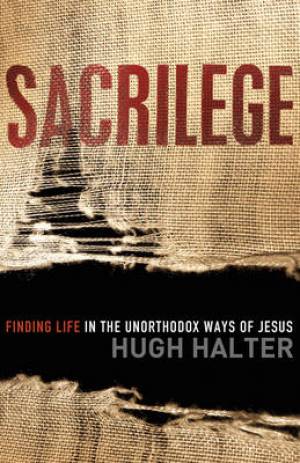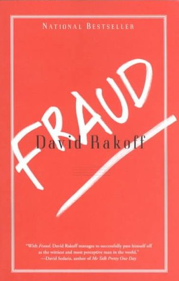{Once again, I’m posting as part of the Patheos book club, Take & Read}
I didn’t expect to like Sacrilege.
I am always happy to acknowledge, even celebrate Jesus’ iconoclastic ways, but I’m not exactly comfortable in the non-churchy feeling ‘gatherings of Christ-followers’ that Hugh Halter advocates.
It’s not that I don’t think that they are a perfectly commendable, appropriate way to be the church, it’s just that I am quite happy to meet and worship God in a traditional, even liturgical, setting. I get it that not everyone feels that way, which is fine.
But I find liturgy freeing, not constraining, and while I agree that some churches could probably spend a little less on operating costs and a little more on ‘the least of these,’ I’m just not convinced that de-institutionalizing church is the answer to hypocrisy and apathy.
For example, Halter remarks that his church reserves one Sunday a month (or thereabouts) to forgo meeting for worship and instead do some kind of service to their community–teaching inner-city kids to play lacrosse and having a barbeque party, say. In a way, this sounds great.
But I would miss singing hymns, hearing the word, celebrating the Eucharist. It is in those humble things–worshiping in word and song and sacrament for just an hour or so–that I meet God and am inclined to see the world outside the church with new eyes. I don’t see how (even occasionally) erasing the tradition of Sunday worship is the best way to make the church more ‘missional.’
(Why not erase an hour or two of something else–TV? Internet? Working out?)
Here’s the thing–I like this book despite not liking a lot of things in it.
I really do like Halter’s insistence that following Jesus doesn’t mean we have to get caught up in all of the social, political, institutional trappings that have grown up around Christianity, especially American Christianity.
But instead of a primitivist (yea, perhaps Marcionist?) turn that says “let’s just read the 4 Gospels and James’ epistle and built our practice on that” (which Halter essentially says), I suspect a better way might be to look to other Christian traditions outside American evangelicalism to discern how other faithful, Christ-following people have lived out (and do live out) their faith.
Because it seems to me there’s a tendency for that which is radical and ‘unorthodox’ to become, over time, a new orthodoxy.
I’m all for smashing the idols that Christians worship, but I’m sticking with the liturgy and with Micah 6:8–He has told you, O mortal, what is good; and what does the Lord require of you but to do justice, and to love kindness, and to walk humbly with your God?
It’s not in the Gospels or in James, but it sure does stand the test of time.












